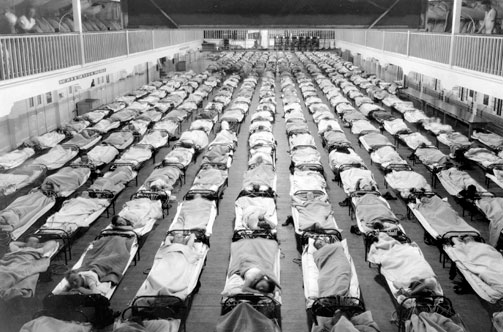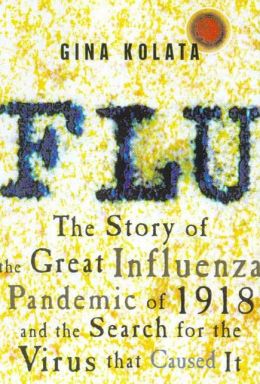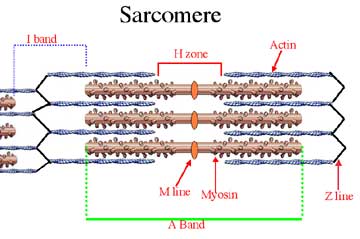The Ted Talk of the prosthetic arms that feel is found here
The Ted Talk talks about how some scientists created bionic limbs that have sensory outputs that allow the brain to pick up the feeling of something they touch. this seems crazy but it actually works it is amazing how science advances and helps people to recover from a variety of things. of course this is on its early stages because its not very practical for all the public and its roughly a fast of a response of a robot but it works. these scientists are working hard to make these arms to work as best as they can make them, it is not like a real arm but it really is worth to have because it enables you to do many of the things that you couldn't do with just one hand. there are many improvements to be made but it is really good to have this available for people that lost their arms in terrible accidents, war, etc.
the prosthetic limbs work with sensors places in other parts of the body to pick up the desired movement, it is very interesting to see and it makes the viewer think about the wonders of science.
Sunday, April 28, 2013
Friday, April 26, 2013
Remote Controlled
Remote controlled video is about a cockroach being controlled by using some type of mechanism in the Nervous system, i believe, this is a really odd experiment but it seems to work.
if possible comment what you think about these experiments and why so
There are always bad things with every new invention, this might enable people to set cameras and use as espionage tools but it also may be good to explore narrow pathways and all kinds of small environments
this is a really cool finding, who would have thought that people would be able to remotely control animals?
this might lead to trouble in terms of animal cruelty organizations and such but it might come in handy in some cases.
These videos are similar to the one i watched and they discuss some things in them:
3 questions of Friday 26th of April
What have i completed recently?
-i have been reading a lot and also been trying to keep up with the work and act responsible for once in my life
What have i learned recently?
-I learned many things:
1.signals in the spinal chord go afferent from the dorsal & efferent from the ventral side
2.parasimpathetic & somatic reactions are slow
3.many things about flu viruses in the book
just a few things of all the information covered.
Whats next?
- planning to read even more to finish my book on time and do all my homework this weekend
-i have been reading a lot and also been trying to keep up with the work and act responsible for once in my life
What have i learned recently?
-I learned many things:
1.signals in the spinal chord go afferent from the dorsal & efferent from the ventral side
2.parasimpathetic & somatic reactions are slow
3.many things about flu viruses in the book
just a few things of all the information covered.
Whats next?
- planning to read even more to finish my book on time and do all my homework this weekend
Tuesday, April 23, 2013
Litteracy Blog CH 1&2
Flu The Story of The Great Influenza Pandemic of 1918 and the Search for the Virus That Caused it
This book had been a little boring to me until about the end of the first chapter where it started intriguing me, it turns out that this book has much information that flows through your mind making you brainstorm all the possibilities, giving you sources to make connections of what? where? why?, the pandemic went all over the world killing between 20 million to 100 million, and the reason is not known or i haven't gotten that far yet.Chapter 1:
- The influenza summary: where it started and what happened in 1918, there were many theories of how it flourished. this organism was said to be some type of war weapon from Germany but nobody knows. this influenza was known for its horrific numbers of deaths. As the title of the chapter says it explains The Plague Year. only a year a disease that had disappeared and reappeared stronger in that same year and completely vanished afterwards.
Chapter 2:
 |
| Hospitals were filled with the ill suffering from the pandemic |
Wednesday, April 17, 2013
Leech Dissection Online Lab
Leech Dissection Online Lab
The Leech Dissection Lab gave me an idea of how many varieties are there of everything, if we have different kinds of receptors of feeling what else is there?
The disection was very interesting, what caught my eye was the way the reactions were expressed in the micromanipulator, the reactions of the cells were very interesting overall.
in the The Neurophysiology Lab you can appreciate the actual lab. there is some background to it so it would be a good idea to check that first.
 |
| Leches' background info in the lab |
overall it was a great experience that i would have liked to had made in person but i guess this is okay.
Monday, April 15, 2013
How Does the Brain Work: Hypothesis
Everybody knows how the heart works, if you ask anyone they will tell you something like, "well it pumps blood all over the body", but then:
 Before any research on this, my guess of how does the brain control everything is by electrochemical signals/impulses. The brain uses impulses to signal what to do. these electric impulses are what it makes us do everything; open our eyes, get out of bed, etc. we move our muscles because we tell our brain to send these electric impulses to our muscles through efferent pathways, these are passed through the spinal chord and sent to the desired muscle by efferent neurons all the way until the movement happens, this is a very fast process. the Brain and spinal chord is the CNS (Central Nervous System) and everything else is PNS (Peripheral Nervous System)
Before any research on this, my guess of how does the brain control everything is by electrochemical signals/impulses. The brain uses impulses to signal what to do. these electric impulses are what it makes us do everything; open our eyes, get out of bed, etc. we move our muscles because we tell our brain to send these electric impulses to our muscles through efferent pathways, these are passed through the spinal chord and sent to the desired muscle by efferent neurons all the way until the movement happens, this is a very fast process. the Brain and spinal chord is the CNS (Central Nervous System) and everything else is PNS (Peripheral Nervous System)
how does the brain work?
 Before any research on this, my guess of how does the brain control everything is by electrochemical signals/impulses. The brain uses impulses to signal what to do. these electric impulses are what it makes us do everything; open our eyes, get out of bed, etc. we move our muscles because we tell our brain to send these electric impulses to our muscles through efferent pathways, these are passed through the spinal chord and sent to the desired muscle by efferent neurons all the way until the movement happens, this is a very fast process. the Brain and spinal chord is the CNS (Central Nervous System) and everything else is PNS (Peripheral Nervous System)
Before any research on this, my guess of how does the brain control everything is by electrochemical signals/impulses. The brain uses impulses to signal what to do. these electric impulses are what it makes us do everything; open our eyes, get out of bed, etc. we move our muscles because we tell our brain to send these electric impulses to our muscles through efferent pathways, these are passed through the spinal chord and sent to the desired muscle by efferent neurons all the way until the movement happens, this is a very fast process. the Brain and spinal chord is the CNS (Central Nervous System) and everything else is PNS (Peripheral Nervous System)
Electrochemical impulse
CNS + PNS
Thursday, April 11, 2013
three questions of 2nd week of april
what have i completed recently?
-Finished 3 glogs, one of them being extra credit
what have i learned recetly?
-how to complete a decent glog
what's next?
-planning to read more as well as starting to tweet, stop slaking
-Finished 3 glogs, one of them being extra credit
what have i learned recetly?
-how to complete a decent glog
what's next?
-planning to read more as well as starting to tweet, stop slaking
Three Questions of April 5th
what tasks have i completed recently?
-i have done some studying for the test of monday 8th, not much though
what have i learned recently?
-i learned things about action potential ACh and calcium regarding to muscle contraction
what's next?
-Finish internet projects such as glogs and blogs
-i have done some studying for the test of monday 8th, not much though
what have i learned recently?
-i learned things about action potential ACh and calcium regarding to muscle contraction
what's next?
-Finish internet projects such as glogs and blogs
Wednesday, April 3, 2013
Anatomy of Skeletal Muscle..
The anatomy of skeletal muscle is not very complex. It could be explained as just "Tubes within tubes".
First tube from out-in is basically the muscle itself; the outermost layer of the muscle which is epimysium. epimysium is the "membrane" that holds smaller tubes of Perimysium the second biggest "mysium". then comes the endomysium which is the smallest of these. inside the endomysium tubes are located in. These tubes are muscle fibers which are basically the cells. inside the cell there are more tubes of myofibril. These myofibrils hace whats called a sarcomere which is composed of two myofilaments, these are Actin and Myosin.
Actin is the thin filament and Myosin is the thick filament.
these two are the main part of the sarcomere(The smallest contractile unit.)
To contract, the myosin uses ATP to form a cross-bridge with the atin the myosin then slides the actin making the H zone dissapear.
Tuesday, April 2, 2013
3 Questions of friday 22nd of march
1- What tasks have i completed?
= recently i have been doing a little studying of the muscles, and a little coloring too. i have been doing my flipped notes and trying to catch up on everything else.
2-what have i learned?
=basically i have learned new things about the sliding filament theory and the physiology behind it.
3- what's next?
= I am planning of spending an hour a day (or more) doing homework sometimes i find homework confusing or hard so i'm also planning on going to get help in lunch hours to really retain more important information.
= recently i have been doing a little studying of the muscles, and a little coloring too. i have been doing my flipped notes and trying to catch up on everything else.
2-what have i learned?
=basically i have learned new things about the sliding filament theory and the physiology behind it.
3- what's next?
= I am planning of spending an hour a day (or more) doing homework sometimes i find homework confusing or hard so i'm also planning on going to get help in lunch hours to really retain more important information.
My Book
My Book!
 I am currently reading "FLU The Story of the Great Influenza Pandemic of 1918 and the Search for the Virus That Caused It" right now I stand in the very beginning i have read it about 3 times because i'm having trouble understanding it completely. honestly it brings me a headache but i'm planning of reading it more often. So far the book has given me information about the 1918 flu and it seems like its also a good story about those times, i have learned a few things about the 191 lifestyle and also some theories about how it got here, for example it said the it came in U-boats, or in medicine from Germany and such. i hope this book don't turn out to be boring because it looks like it has a nice story behind it.
I am currently reading "FLU The Story of the Great Influenza Pandemic of 1918 and the Search for the Virus That Caused It" right now I stand in the very beginning i have read it about 3 times because i'm having trouble understanding it completely. honestly it brings me a headache but i'm planning of reading it more often. So far the book has given me information about the 1918 flu and it seems like its also a good story about those times, i have learned a few things about the 191 lifestyle and also some theories about how it got here, for example it said the it came in U-boats, or in medicine from Germany and such. i hope this book don't turn out to be boring because it looks like it has a nice story behind it.
Subscribe to:
Comments (Atom)









